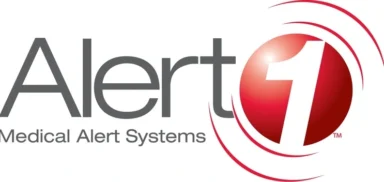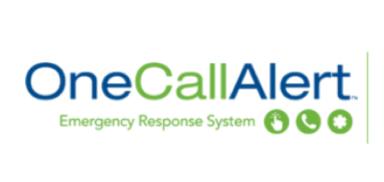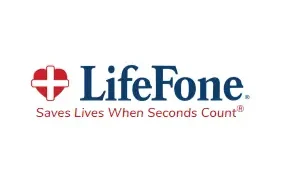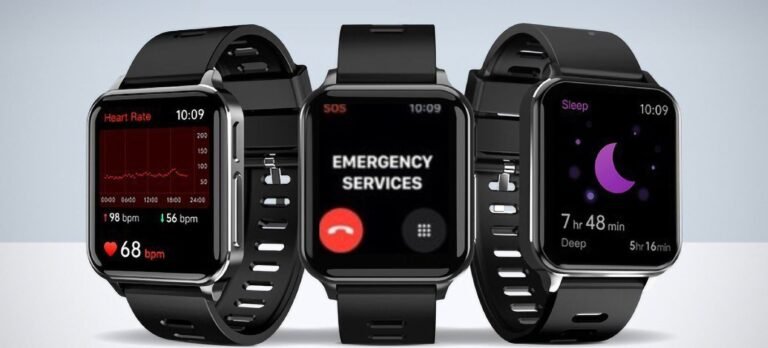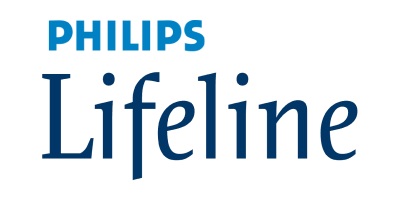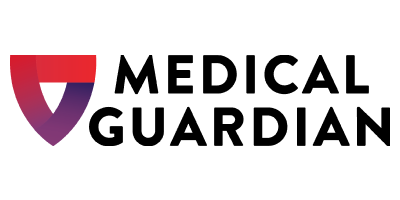Two exquisite companies stand out when it comes to choosing a medical alert system: Alert 1 and One Call Alert. Both are considered reliable services in emergency cases. However, some differences are present, and this comparison aims to help you choose the right device for your specific needs and preferences.
Alert-1

Alert-1 provides top-notch medical alert systems designed to ensure the safety and independence of seniors.
- Flexible pricing plans
- Comprehensive Coverage
- User-Friendly
- High Reliability
- Certified Call Centre
- Risk-free trial
We chose Alert-1 for its reliable emergency response, user-friendly devices, and customizable plans that cater to various needs and budgets.
OneCall Alert
One Call Alert provides comprehensive medical alert solutions with a range of devices suited for every lifestyle.
- Medical Alert Systems with Fall Detection
- GPS Tracking
- Waterproof Devices
- Affordable Plans
- Ease of Setup and Testing
- 30-Day Trial
One Call Alert makes our list for its comprehensive range of medical alert solutions that cater to all lifestyles, ensuring safety both at home and away. The brand’s flexibility, including month-to-month options, multiple user capability, and a price-lock guarantee, alongside attentive customer service, positions One Call Alert as a versatile and customer-focused provider in the medical alert space.
General Information
Alert 1 is a well-known and trusted name in the industry. The range of medical alert systems is inspiring and designed to cover various needs. Thanks to its flexibility and customer-centric approach, it provides service plans and devices for everyone, independently on the client’s lifestyle.
One Call Alert has user-friendly and technologically advanced systems. It stands out thanks to its simple pricing structure and straightforward approach to the offers, making it a logical choice for seniors and their families.
Technical Characteristics
Alert One and One Call are similar in a variety of devices and offers, although their technical characteristics show quite a difference. Both companies provide in-home and portable devices with landline and cellular connections. The first difference is the battery capacity—Alert One provides a 24-hour backup, while One Call offers a 30-hour charge. That’s why the latter-mentioned brand has a definite advantage, with devices being functional for longer periods of time. This is particularly beneficial for users who forget to charge their devices regularly.
The range of in-home systems for both providers is 600 feet, with no range limit for mobile devices.
Additionally, both companies offer fall detection, with One Call including it as a standard feature in some of their plans.
Monitoring and Response
Both companies offer 24/7 monitoring with US-based call centers staffed by trained professionals capable of handling various emergencies efficiently. Their response times are incredibly fast, generally within seconds. However, One Call, unlike Alert 1, has one huge disadvantage—it primarily offers support in English, which might limit accessibility for non-English speakers. Although, like Alert 1, One Call ensures uninterrupted service through multiple monitoring centers.
Read Our Latest Guides
Additional Features
Beyond basic offers, companies provide competitive additional features for enhanced user safety and experience. Alert 1 has medication reminder services, daily check-in calls, an activity-monitoring tracker, and a protection plan for damaged equipment. With all the latter-mentioned features, One Call additionally has a mobile app for family members for constant monitoring and includes fall detection in some subscription plans.
Customer Service and Support
Alert 1 offers customer support during extended business hours on weekdays, with comprehensive installation guides, phone support, and technical assistance. Their website features FAQs, instructional videos, and detailed user manuals. One Call provides support during standard business hours on weekdays, with installation guides, phone support, and readily available technical assistance. Their website also includes FAQs, instructional videos, and detailed guides. While both brands offer similar services, the specific details, such as Alert 1’s extended support hours and One Call Alert’s mobile app, may influence the choice.
Costs and Benefits
Alert 1 provides flexible service plans with monthly, quarterly, and annual options, allowing users to choose a plan that suits their financial situation. Their competitive prices and lack of equipment fees, in most cases, offer significant cost savings, especially for long-term commitments. In contrast, One Call provides three main service plans—basic in-home, in-home with cellular, and mobile with GPS—with transparent, all-inclusive pricing. Customers can save by choosing quarterly or annual payment options, and a 30-day risk-free trial allows users to test the service without a long-term commitment. While Alert 1 offers more flexibility in service plans and payment options, One Call’s straightforward pricing and included equipment make it appealing to those who value simplicity and want to avoid upfront costs.
Recommended Blog Posts
Frequently Asked Questions
Which medical alert system is better for seniors living alone?
Both brands have considerable strengths and flaws, but the main goal remains the same—providing users with peace and comfort. The choice between Alert 1 and One Call heavily depends on individual preferences and specific needs.
How do the monitoring centers compare?
Both operate US-based monitoring centers that provide 24/7 emergency response. They ensure quick response times and have redundant centers to maintain continuous service. Something to consider—Alert 1 offers multilingual support, which can be an advantage for non-English-speaking users, while One Call primarily supports English.
What are the differences in battery life between the devices?
Alert 1’s in-home devices have a 24-hour backup battery, and their mobile devices can last several days on a single charge. In contrast, One Call’s in-home devices feature a longer 30-hour backup battery, and their mobile units offer around 72 hours of battery life. This makes the latter-mentioned brand a better option for users who may forget to charge their devices regularly.
Are there any cost-saving benefits?
Both brands offer cost-saving benefits, depending on the user’s preferred payment plan and needs.
Which one offers better customer service and support?
Both brands provide excellent customer service and support. Alert 1 offers extended business hours for customer support and provides comprehensive resources on its website, including FAQs, instructional videos, and user manuals. One Call provides support during standard business hours and offers various online resources. The choice between the two may depend on your specific support needs and the availability of resources.
Final Thoughts
After closer examination, the choice between Alert 1 and One Call heavily depends on individual preferences and specific needs. Both brands have considerable strengths and flaws, but the main goal remains the same—providing users with peace and comfort.
Remember, selecting the right provider for the medical alert system directly influences the quality of your life and general well-being.


